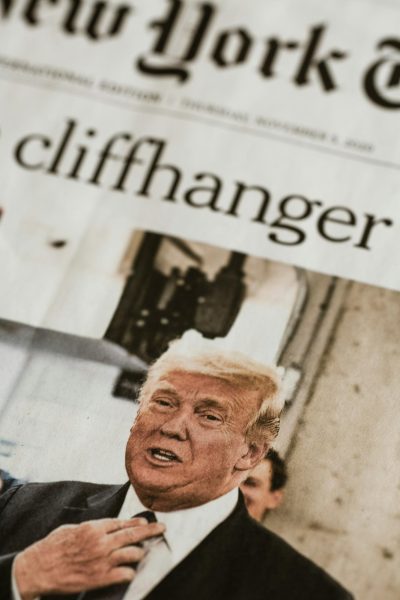Drunken vandalism scandal costs Olympian Ryan Lochte several endorsements
After a scandal involving his lie about being robbed at gunpoint, Ryan Lochte, a 12-time Olympic gold medalist, lost 4 substantial endorsements from Speedo, Ralph Lauren, Airweave and Gentle Hair Removal as of Monday. This loss represents a huge financial blow to Lochte and exasperates the already-hurting image of Lochte and the American Olympic team.
The trouble for Lochte began Aug. 14 when Lochte claimed that he and three other teammates were robbed at gunpoint. Only an hour after the story broke, the International Olympic Committee quickly claimed that the robbery did not take place.
Of course, this denial caused skepticism by those following his story. However, later that morning, Lochte’s mother confirms her son’s story and explained the gunpoint robbing of his and his teammates’ wallets. That same afternoon, Lochte talked with the Today Show, detailing the full incident and describing the perpetrators as police impersonators.
According to his story, the alleged attackers “pulled out their guns. They told the other swimmers to get down on the ground — they got down on the ground. I refused. I was like, ‘We didn’t do anything wrong, so — I’m not getting down on the ground.’”
Lochte claimed that after he refused to get on the ground, the feign policeman put a gun to his head and proceeded to take his wallet, leaving his phone and credentials.
Following Lochte’s first interview, the United States Olympic Committee confirmed the swimmer’s story, stating “all four athletes are safe and cooperating with authorities.”
Although there were still questionable details surrounding the story, Lochte repeated his story to several media outlets as other Olympic committees began finally supporting him. Two days later, Lochte decided to cut his trip short and posted photos indicating he had returned to the United States. The same evening, Lochte and the USOC met and discussed why he did not immediately report the incident that caused so much confusion between the USOC and IOC.
Back in Rio, the police force struggled to find solid evidence to back all of Lochte’s claims. The police could not find the taxi driver nor any witnesses Lochte referenced in his testimony.
When police interviewed Lochte and one other teammate, both athletes admitted to being heavily intoxicated and could not remember any details about the taxi or the time the robbery took place.
On Aug. 17, a Brazilian judge officially issued an order to seize the passports of Lochte and his teammate, James Feigen. As Lochte had already flown back to the United States a day earlier, Feigen had remained in Brazil.
Although the judge did not seize the passports of Lochte’s remaining two teammates, Gunnar Bentz and Jack Conger, both were pulled of their flights by Brazilian authorities.
At 10:43 p.m. that same night, Lochte officially changed his report, saying the gun was never pressed against his forehead and the incident occurred outside a gas station bathroom. Lochte also reports that the taxi driver refused to drive them.
Still, news reporters, including Matt Lauer from NBC, reported that Lochte “wouldn’t make up a story like this, nor would the others.”
The next morning, the swimmers were forced to testify before leaving the country. The Brazilian authorities explained they have a video showing the U.S. swimmers breaking down the gas station bathroom door and fighting with the security guard.
“All are represented by counsel and being appropriately supported by the USOC and the U.S. Consulate in Rio,” the USOC wrote in a statement.
On Aug. 18, the video was officially released, showing the swimmers were stopped by security and did indeed have guns pointed at them after causing damages and disturbances while intoxicated.
Lochte and teammates confirmed their story was heavily exaggerated.
In order to settle the charges faced due to fabrication, Feigen agreed to pay $11,000 to a Brazilian charity.
“I don’t know why [I did it],” Lochte said when Lauer asked him why he felt the need to lie. “You know, it was still hours after the incident happened. I was still intoxicated. I was still under that influence.”
After the final interview, Lochte began losing the big endorsements, which will inevitably affect his brand and have already put a substantial dent in his earnings and his public image.










